Financial Matters – Stuart Burns
Every January we hear the President give a speech to summarize the current “State of the Union” and set goals for our country in the coming year. It’s important that we, as individuals, do the same thing annually and take a look at the current state of our finances to determine our goals and progress we are making. This month we are going to look at tips on how we can review our own financial “State of the Union”.
“Training camp isn’t fun, but it is necessary” -Walter Payton, Chicago Bears running back & #2 all time NFL rusher
- Review your financial goals
- Take a look at your progress from the prior year
- Determine if your goals have changed
- Review what went well and what you can improve from last year
One tip here is that once you have completed this high level review to write your goals down and break down into specific tasks. In business we refer to this as “SMART” Goals.
- Specific – What do you want to achieve
- Measureable – How will you see progress
- Achievable – Setting stretch goals is fine but make sure it fits in with something you can do
- Relevant/Realistic – Does this fit into your overall goals? Or help you achieve your overall goals
- Time Bound – There should be some target dates (monthly, yearly). An example is you could save a specific amount of money each check
Personal Situation
- Are there any changes that you might see coming that will affect your finances?
- Job Changes
- Retiring
- Marriage
The main point here is to plan for changes in advance and try to determine how your finances might change as a result.
Asset Review
This would include reviewing the following:
- Home Insurance
- Car Insurance
- Health Insurance
- Will, Estate planning
One year I was reviewing my home insurance and discussing with my insurance agent and we found that because I had built an addition and the increasing costs of replacement that my insurance was insufficient. How my recent property changes affected my insurance was not something I was thinking about, but if something had happened my insurance would not have been adequate to cover the costs. I am glad I made the adjustments without much added costs for the insurance.
Investment Performance
- Retirement Accounts
- Savings
An example of this is a retirement account that includes different investments or mutual funds that will perform slightly differently for the year. So each year you may need to rebalance your accounts to ensure you have the same intended diversification across investments. You might also review performance and change parts of your investment.
Debts
- Are you making progress on paying down?
- Can you make bigger payments if you do have debt?
- Can you consolidate any debts to pay less interest
Make sure that you have a list of all debts and a written plan to pay them down.
“Debt is normal. Be weird” -Dave Ramsey
Credit Report
Make sure you are reviewing your credit report annually so that you can make sure all reported information is correct. I have provided a link to get your free report but this is one of the most important things to do since the interest you pay on mortgage or other loans is largely based on the information on this report. The better your credit score, the lower interest you will pay as more banks and companies compete for your business.
AnnualCreditReport.com.
Keep your eyes open for the next Father Matter’s Job and Training Institute; I hope to see you soon.
For some great financial tools and resources go to: http://learn.bankofamerica.com/money-management/ and http://www.bettermoneyhabits.com or contact Stuart Burns at 602-464-1381 or email me at stuart.j.burns@bankofamerica.com




